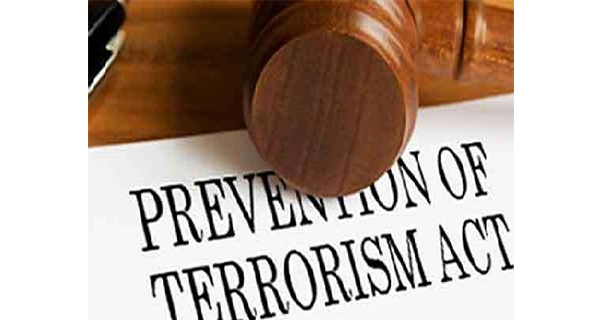The Sri Lanka Collective for the Convention states that the Government has begun to engage with civil society in reforming the Prevention of Terrorism Act. The Ministerial Sub-Committee on Amendments to the Prevention of Terrorism Act recently met with members of the Coordinating Committee for Sri Lanka (SLCC) to discuss the current status of their proposals. Sri Lanka Cricket is a consortium of civil society organizations aimed at building reconciliation, human rights and peace.
The chairman of the subcommittee, External Affairs Minister Prof. GL Peiris, said there was no draft law yet but only a series of proposals that he hoped to discuss with civil society and other groups. He has stated that the Prevention of Terrorism Act will not be repealed as it is still needed due to security concerns. He explained the need for a balance between individual freedom and liberty and the need for national security.
The government currently hopes to amend.
Detention Order: The validity period of a detention order is reduced from 18 months to 12 months. Restrictions on the Use of the Prevention of Terrorism Act: The IGP has issued clear instructions to police officers not to resort to the Prevention of Terrorism Act as a means of routine arrest or as a shortcut. The norm should be to investigate using the common law. They should use the Prevention of Terrorism Act only when there is sufficient evidence in the investigation and in exceptional cases if national security issues arise during the investigation process.
Supervision of Magistrates: It is mandatory for Magistrates to visit the detention center and personally ensure the welfare of the detainees. The Human Rights Commission should be informed of such detention. Magistrates are empowered to order the IGP to investigate any evidence of torture.
In such a case the Attorney General will file criminal cases Judicial Supervision: The detainee has access to a judicial appeal under Article 126 (fundamental rights jurisdiction of the Supreme Court) and Article 140 (jurisdiction of the Court of Appeal) of the Constitution. This is stated in the law so as not to create ambiguity. This is the first time in the four-decade history of the PTA that detention orders have been legally challenged. Access to a lawyer: The detainee has the right to access a lawyer and the presence of family members. This would be a statutory right as there is no discretion in this matter
Repeal of Article 14 of the Prevention of Terrorism Act: This prohibits the publication of a statement made by a detainee or in connection with an investigation. Speedy trial: To prevent delays, proceedings under the Prevention of Terrorism Act are being conducted daily until the end of the trial. The Chief Justice has already ordered that cases under the Prevention of Terrorism Act be expedited Advisory Board: This is established under Section 13 of the Prevention of Terrorism Act. Led by retired Chief Justice Ashoka de Silva, it has already recommended the release of 26, 8 and 6 prisoners on three occasions. The Advisory Council is expected to investigate, release, grant bail and make recommendations to the President and advise the President on further action against those imprisoned and detained in connection with the terrorist terrorist.
Prof. Peiris explained to the Sri Lanka Collective that the changes in the proposed PTA were the result of an agreement between the Ministries of Foreign Affairs, Justice and Defense and the Attorney General’s Department. These changes are not considered to have occurred once, but as part of a continuum, other changes later agreed upon will be considered. He assured that changes in the legislation would accelerate and take place early next year.
SLCC presented to the Ministerial Subcommittee our own position paper which provides the principles underlying and restricting the Prevention of Terrorism Act which we hope to include in the amended Prevention of Terrorism Act. That is the following point.
Arbitrary arrests must end. Ten civilians, including a mother of two, gave an example from Batticaloa under the Prevention of Terrorism Act to commemorate their dead relatives. The period prior to the indictment should be considered under the common law, so the judiciary had the power to grant bail to detainees as decided by the Supreme Court and the Magistrates in the Pathmanathan case. Lack of communication and cross-examination can be corrected by video links for communication when remand prisoners are sent to other districts. That all proceedings relating to detention should be more judicial than executive or administrative.
